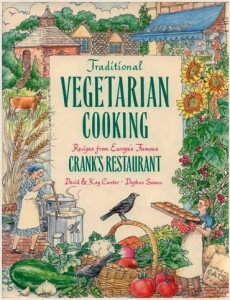Musings from Students of the Pardes Institute of Jewish Studies in Jerusalem
Posted on November 16, 2012 by Aliza Geller
When I was asked to write a Dvar Torah for Parshat Toldot, two memories came to mind:
The first, was from when I was in forth grade, at Solomon Schechter of Bergen County, in New Milford, New Jersey. For certain Parshiot, we were assigned to do a project, Parshat Toldot was mine. I made my mother’s Tomato Lentil soup (with a lot of help) for my class.
 The second memory is about what would happen every time my mother made tomato lentil soup:
The second memory is about what would happen every time my mother made tomato lentil soup:
My mother’s tomato lentil soup is quite famous (at least among family friends), and due to my mother’s fairly intensive work schedule it was only ever made for Shabbat. In fact, on Friday afternoons, instead of eating (insert your normal snack food name here) for snack after school, my brother and I would occasionally bargain with her for the ability to have her tomato lentil soup before Shabbat dinner. We would say something like, “Sure, we’ll clean our rooms!”, “Of course we will set the table!” After enjoying our snack, we would run off, promises forgotten. That is until about 20 minutes before Shabbat, when we would be called on to make good on our promises. “What do you mean, I said I would clean my room?!”, “When did I promise to set the table?!” We (usually) made good on these promises, our reluctance apparent to anyone observing.
In the case of my family, we never made a promise as big as, “I will give you my birthright for your freshly made soup” (as if we have such extravagant birthrights to bargain with!). On a fantastically apropos side note, my brother’s name is Yaakov, and he is younger then me.
I believe that the Torah is a guide to establishing a personal moral code. Much of the narrative that appears does not always portray our central figures as upstanding human beings. I would propose that stories such as this one with Yaakov and Esav illustrate the type of moral stories found in Biblical narrative, often being about things you should not be doing. From this story, I learned that there are some things you don’t bargain with and you should not make promises you cannot follow though with. It is also important to carefully weigh decisions, especially financial ones! When people make rash decisions that seem great in the short term, they may ultimately be problematic at a later time.
 Fitting with Pardes tradition, I will end this Dvar Torah with a blessing: I want to bless us, me too why not, to have the clarity to make decisions carefully and to not make promises we cannot keep, no matter how small.
Fitting with Pardes tradition, I will end this Dvar Torah with a blessing: I want to bless us, me too why not, to have the clarity to make decisions carefully and to not make promises we cannot keep, no matter how small.
By the way, the recipe comes from The Cranks Vegetarian Cook Book, Cranks is a restaurant in the UK, in fact the first vegetarian restaurant in the UK, founded in the 1960’s.